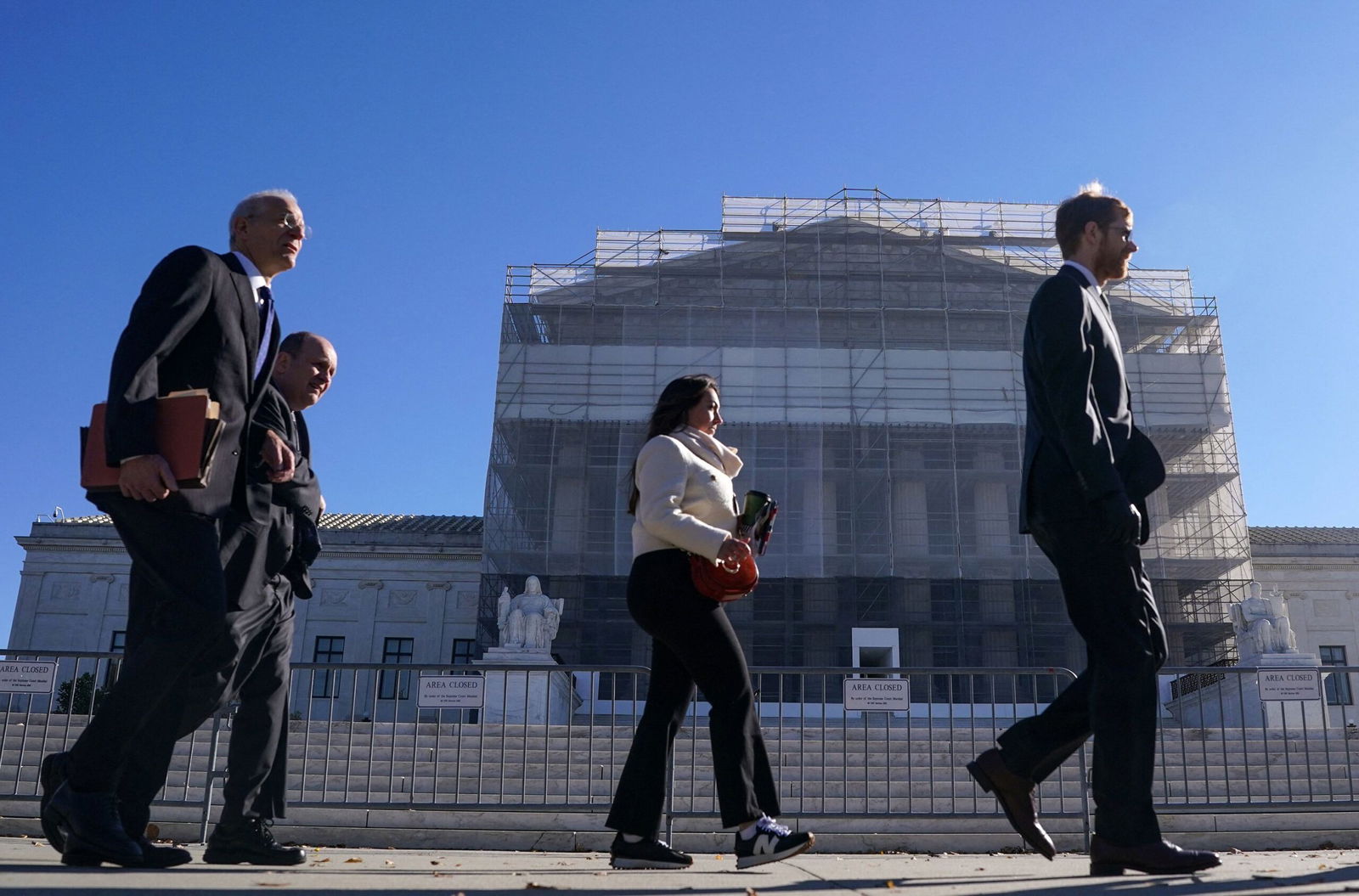Supreme Court agrees to decide if mail-in ballots can arrive after Election Day

Members of the public walk outside the U.S. Supreme Court to attend oral arguments on U.S. President Donald Trump's bid to preserve sweeping tariffs after lower courts ruled that Trump overstepped his authority
By John Fritze, CNN
(CNN) — The Supreme Court agreed Monday to decide whether states may count mail-in ballots received after Election Day, taking up a Republican-led lawsuit that could affect election laws in more than a dozen states across the country.
It is the latest of several high-profile voting cases to make it on to the Supreme Court’s docket this year as the justices are asked to deal with controversies dating back over the past several elections.
Fifteen states allow regular mail ballots to be accepted after Election Day, including presidential battleground Nevada. Most of the nation’s battleground states – including Michigan, Pennsylvania and Wisconsin – require ballots to be received by Election Day.
Other states accept military ballots after Election Day.
A Mississippi law, enacted during the Covid-19 pandemic, allows ballots to be received up to five days late, so long as they are postmarked by Election Day. The Republican National Committee and others sued over that law, claiming the provision violated a federal law that fixes the date for the election.
“With rare outliers, the states mandated that ballots must be received by election officials by election day,” the RNC told the Supreme Court in written arguments this year. “But recently, an increasing number of States – including Mississippi – have deviated from that practice by permitting at least some ballots to be received after election day.”
Officials in Mississippi, where Trump carried more than 60% of the vote, have questioned the RNC’s logic. An election, they told the Supreme Court, is the choice of an official.
“Voters make that choice by casting – marking and submitting – their ballots by election day. The election has then occurred, even if election officials do not receive all ballots by that day,” Mississippi officials said in written arguments. “Under Mississippi law, voters cast their ballots by election day.”
Raising doubts about ballots that were not counted until after Election Day was key to President Donald Trump’s efforts to delegitimize the 2020 election. The question in the case is about ballots that were received after the election, not ballots that are received before the election but not counted until later.
The conservative 5th US Circuit Court of Appeals ruled last year that Mississippi was violating federal law by counting mail ballots that arrived after Election Day, but the court notably stopped short of blocking the state’s policy before the 2024 presidential election.
The Supreme Court is already considering other important cases involving voting and elections. It heard arguments in October in a case challenging the power of the Voting Rights Act to limit discrimination in redistricting. The Supreme Court’s conservative supermajority signaled deep skepticism in that case over the creation of a second majority Black district in Louisiana in a case that could have nationwide implications.
And a majority of the court late month indicated it would likely back a Republican congressman from Illinois who is challenging a state law that allows mail ballots to be received after Election Day, a decision that would let him proceed with a potentially explosive lawsuit that lower courts had rejected.
This story has been updated with additional details.
The-CNN-Wire
™ & © 2025 Cable News Network, Inc., a Warner Bros. Discovery Company. All rights reserved.



